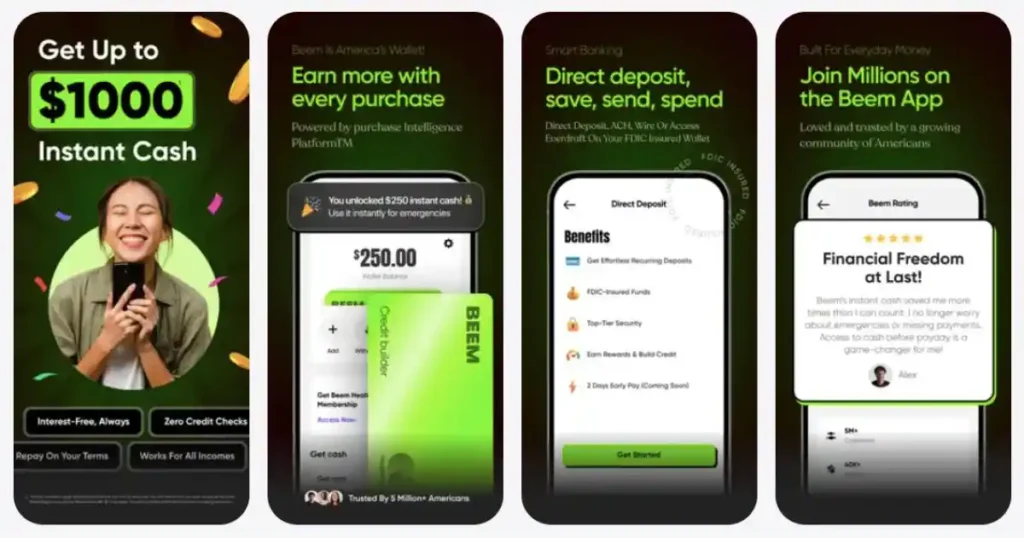Table of Contents
In the modern job market, upskilling changes how paycheck earners progress their careers and increase their earning potential. The days when one degree could last you your whole career are behind us. In a world where a paycheck-to-paycheck existence was already proliferating whilst ever-higher salaries and a corporate dreamscape seem. Still a distant hope for many, acquiring new skills is no longer an option but a necessity. In the job market today, where adaptability and initiative are more valued than ever, upskilling allows you to survive and thrive. Let’s learn why upskilling is a game-changer for paycheck earners.
For many paycheck earners, especially those in roles that are being automated or outsourced, upskilling is no longer just a smart option; it’s a career necessity. It’s how you stay valuable, how you stay employed, and how you grow your income. It closes the gap between where you are and where you want to be, whether in a higher-paying role, a leadership position, or an entirely different field.
The importance of upskilling also ties directly into how fast industries are evolving. Employers are looking for people who don’t just keep up; they lead the way forward. If you’re willing to learn, adapt, and improve, upskilling can help you break out of financial stagnation and into long-term career growth.
What is Upskilling?
Upskilling refers to learning new skills or improving the ones you already possess to stay relevant and valuable in the workforce. This is not about a fresh start; instead, it is about adding to what you already know so you can be more valuable in your current job or transition into a better one.
Key Objectives
The crucial objectives of this solution are making these candidates employable, improving their earning potential, and ensuring job security for life. Upskilling is more than just filling up your résumé; it is creating an opportunity to convey initiative, a message to your potential employer that you are ready to learn and capable of handling greater responsibility. It makes you a more valuable candidate, whether you’re asking for a raise, a promotion, or are looking for a new job altogether.
Read related blog: How to Upskill from UX/UI Designer to Product Design Lead
Core Functionalities of Upskilling
Upskilling gives you the power to cope with industry changes, take better positions, and become more attractive to employers. It is a forward-looking professional development strategy that helps you stay ahead of the curve in an evolving job market.
Staying Ahead of Tech Trends
The pace of technology advancement is far ahead of what many workplaces can adopt. New tools are becoming available, from AI to cloud computing. Workers that know how to use these tools properly become extremely valuable. Tech literacy is a must-have no matter what domain you belong to: IT, marketing, healthcare, or finance, you name it. This is especially true when transforming jobs, genres, and new roles appear or not based on tech advancement, making upskilling in tech even more critical.
Boosting Market Value
The bottom line is that you become more valuable in the market whenever you add certificates, skills, or experience to your portfolio. Employers will seek individuals who offer added value. Upskilling is the best way to utilize it in a negotiating position, whether for a raise, a role with more responsibility, or even a new career altogether. Learning alone just isn’t enough; it’s learning to get ahead.
Unlocking New Opportunities
What you do now is not the pinnacle of your life unless you make it so. By learning new skills, you can hope for promotions, leadership, or lateral moves to other career areas with better pay and greater job satisfaction. It also broadens your professional network, allowing you more job opportunities. The crux is to keep learning so that you remain an asset and not an overhead.
How to Use/Implement Upskilling
There is a streamlined process to finding, chasing, and profiting from your upskilling opportunities. Like all good things, it begins with self-awareness but ends with precise data.
Assess Skill Gaps
Assess your current position and future self. Where are the gaps? Do you lack experience, communication skills, or certifications specific to your industry? The beginning step to overcoming your deficiencies is knowing that you are deficient. Use any manager feedback, peer reviews, or even job descriptions for positions you want to get as a basis to go from.
Choose Relevant Learning Paths
Make learning suit you, your career path, and your timeline once you know what you need. It can be an online course, a workshop, a webinar, a mentorship, or a traditional certification. Select programs with actual applications and relevance in your industry; choose wisely. Avoid spending time on skills that will not affect your career.
Apply and Track Progress
If you don’t wear your learning, well, it means nothing. You need to practice new skills in your daily work to develop confidence and credibility. Record your progress, set up milestones, and ask for input. Maintain a history of completed courses, skills, and awards—not just for your satisfaction but also for your next job interview or salary negotiation!
Read related blog: Paycheck to Paycheck? Here’s How to Start Saving Anyway
Types/Categories/Use Cases
Depending on your career and industry, you can choose several upskilling types. However, there is no one-size-fits-all answer for everything from technical to soft skills.
Technical Upskilling
This could involve programming languages, new software, or how the digital tools you use in your work function under the hood. An example is a marketing professional learning data analytics or SEO. An example is a nurse training in CIS using a new healthcare software system. The correlation to upskilling in this context is pretty straightforward: without good/up-to-date skill sets, you remain functional but a distant second in the face of digital-first intent.
Soft Skills Development
But do we need to pay attention to soft skills? People usually ignore them, but they are very important, right? Communication skills, leadership, time management, and emotional intelligence are essential for workplace success. So, a welcome employee with technical expertise but unable to fit in or lead will hardly rise to the fore. These will help your team function better and prepare you for leadership.
Industry-Specific Upskilling
This requires that some of these roles be trained or certified. A real estate agent may need continuing education credits, or a project manager has a PMP certification. Investing your time to upskill in such areas will add value to you as a person working in your niche and will only increase your chances of success in the long run.
Read related blog: Why Dental Care Discounts Are a Game-Changer for Families
Benefits of Upskilling
One can easily understand the significance of upskilling and its advantages, such as high salary, job security, better career opportunities, and career satisfaction. Employers will pay you back — you have to make the initial investment in yourself.
Workers who were upskilled regularly indicate feeling more empowered and engaged, as though their career is at a more stable and productive juncture. These people are not waiting for opportunities to come to them; they are creating those opportunities for themselves. Those with more skill sets have an edge in getting the position when layoffs are common in the industries where we work.
The effect can be financially significant. It’s common for upskilled employees to be the first in line for raises, bonuses, and promotions. Even if you go to work for another company, you will probably get better starting pay based on the skills you developed there.
Lastly, the psychological aspect: Learning new things will help keep your mind busy and your career life interesting. It adds some spice and makes you feel like you have made progress, which is crucial for being satisfied with your career for a long time.
Best Practices and Tips
To get the most out of your upskilling journey, it’s important to have a strategy. Here are some tips that can help:
- Stay Updated on Industry Trends: Subscribe to relevant newsletters, attend webinars, or join professional groups.
- Set Clear Goals: Know what you’re trying to achieve—a promotion, a career change, or just keeping your job.
- Schedule Learning Time: Treat learning like a meeting. Block out time on your calendar to focus on new skills.
- Mix It Up: Don’t just take courses. Attend workshops, read books, practice skills, and engage with communities.
- Track ROI: Track how your new skills have helped you. Did you finish a project faster? Earn a bonus? Use these as proof points for your development.
Upskilling isn’t a one-time event—it’s a career-long mindset. Keep evaluating where you are and where you want to be, and adjust your learning accordingly.
Read related blog: How to Upskill and Launch Your Career in Cybersecurity in 2025
Conclusion
The best money that paycheck earners can spend to future-proof their careers and create new income opportunities is on upskilling. It’s more than just being reactive to change; it’s about being a catalyst for it. Upskilling is most important because it gives people the tools to succeed in a world that increasingly rewards those who learn, adapt, and change.
If you need a pay rise, more job security, or to learn and grow, upskilling isn’t the end; it’s a means to an end. You don’t need to reinvent yourself; reinvest in yourself. And in a job market that never changes, that may be the best investment you can make.
Consider Beem’s Everdraft™ to help with cash flow if you need funds. Withdraw $10 – $1,000 of verified bank deposits early, with no credit checks, interest, income restrictions, due dates, or tips. Download the app here!














































